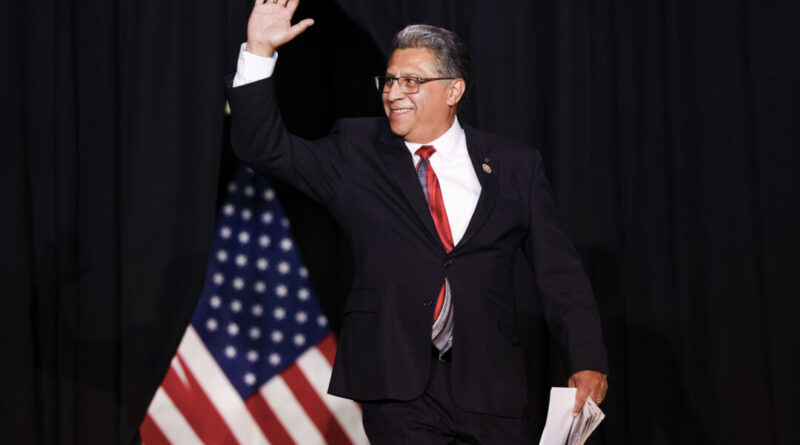Rep. Greg Lopez Highlights Congressional Funding for ‘Zombie Programs’ with DOGE’s Support
A report from the Congressional Budget Office reveals that these unauthorized programs secured $516 billion in funding for the fiscal year 2024.
WASHINGTON—As Elon Musk and Vivek Ramaswamy embark on their Department of Government Efficiency (DOGE) initiative, Rep. Greg Lopez (R-Colo.) is highlighting government expenditure on “zombie programs” as potential cuts.
Zombie programs refer to federal government initiatives that were once authorized by Congress but now lack current authorization—thus, they should no longer be operational.
“We hope that DOGE will bring these zombie programs to light for the American public and the Trump Administration so that lawmakers from all parties are compelled to amend their practices,” expressed Lopez. “This change can only occur through thorough scrutiny by DOGE and pressure from the Trump Administration.”
Lopez’s correspondence identifies several allegedly unauthorized programs that have received congressional appropriations in recent years. Notable mentions include the Clean School Bus Program, which incentivizes zero-emission school buses; the Zero Net Energy Commercial Buildings Initiative, aimed at decreasing fossil fuel use in federal buildings; along with various grant programs from the National Endowment for the Arts and the Department of Health and Human Services.
“This is absolutely absurd,” he stated on X. “We can and should save hundreds of billions each year by defunding government programs that Congress no longer authorizes. We’ll challenge any politician who disagrees to justify their position.”
DOGE will not function as an official government agency in the upcoming Trump administration and currently consists only of Musk and Ramaswamy, who will propose measures for enhancing government efficiency. Neither DOGE nor any executive branch entity possesses the authority to modify funding allocations to government agencies. Only Congress has the power to rescind or direct government funds from the Treasury, a fact acknowledged by Lopez, who commented, “This spending stems from Congress unabashedly neglecting its fundamental oversight role: fiscal responsibility.”
Under formal House rules, programs can only receive funding through legislation if they have prior authorization through separate legislative acts. Consequently, Congress has enacted various authorizing bills—the annual National Defense Authorization Act and most recently, the Federal Aviation Administration Authorization Act—that grant lawful authority for these programs to operate, which are then funded through subsequent appropriations bills.
“We must insist that every program receiving taxpayer money undergo regular reviews and reauthorization, thereby eliminating the zombie programs that persist year after year,” Lopez urged.
Lopez joined Congress in July following a special election to fill the vacancy left by Rep. Ken Buck (R-Colo.) and is a member of the House Budget Committee. In the 119th Congress, he will be succeeded by Rep. Lauren Boebert (R-Colo.), who transitioned from the 3rd District to run in the 4th District and won the general election in November.
DOGE has not yet responded to a request for comment sent via X.





